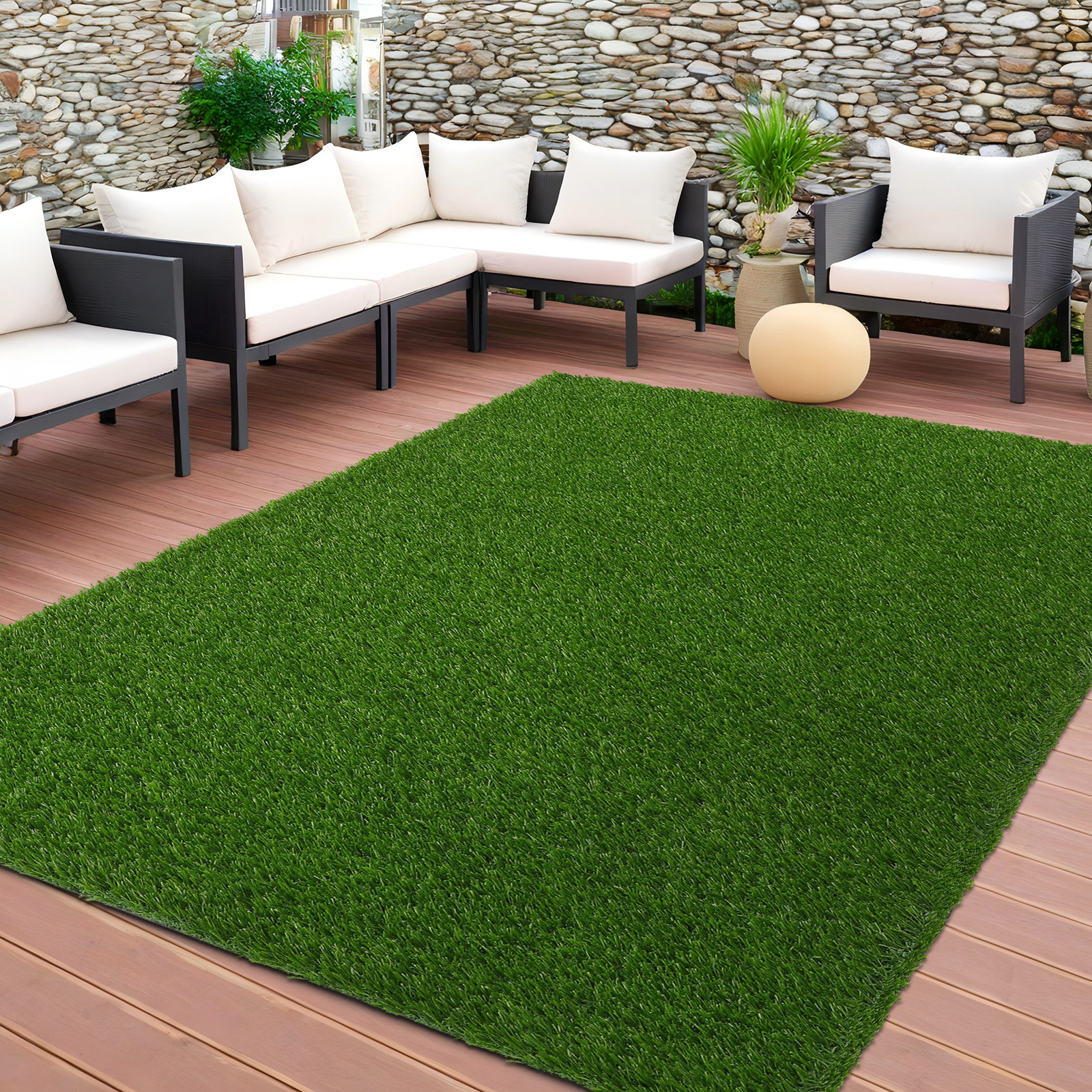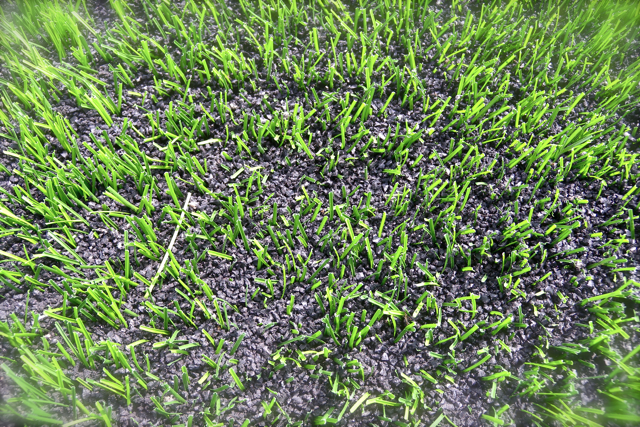Upgrade Your Yard with Expert Turf Installation Phoenix AZ Services
Upgrade Your Yard with Expert Turf Installation Phoenix AZ Services
Blog Article
Delve Into the Environmental Advantages of Opting for Artificial Grass Solutions
The fostering of artificial grass options provides a compelling chance to attend to pushing environmental challenges. By dramatically minimizing water usage and lessening the application of hazardous chemicals, these alternatives not just advertise sustainable landscaping but likewise protect local communities. Furthermore, the lower carbon impact related to decreased upkeep tasks adds to a more sustainable approach to land administration. The effects of these benefits extend past simple conservation efforts, elevating inquiries about their long-lasting effect on environment preservation and overall ecological balance. Discovering these dimensions exposes a complicated interplay worth considering.
Water Conservation Perks
One of the most considerable advantages of synthetic lawn is its ability to preserve water. In contrast, artificial grass does not need watering, significantly decreasing the overall demand for water resources.
By eliminating the need for normal watering, man-made lawn contributes to sustainable landscape techniques and helps minimize the ecological impact of extreme water intake. In addition, the preservation of water encompasses the decrease of drainage, which can result in dirt erosion and waterway air pollution.
In addition, the installation of fabricated lawn allows house owners and towns to designate water sources extra effectively, concentrating on crucial usages such as drinking water and agriculture. The shift in the direction of synthetic grass not just promotes liable water usage however also aligns with broader environmental goals intended at protecting natural deposits.
As areas increasingly focus on sustainability, the water conservation advantages of synthetic lawn present an engaging instance for its fostering in business and property landscaping jobs.
Decreased Chemical Use
The change to synthetic grass considerably reduces the dependence on chemical therapies commonly used in all-natural turf maintenance. Conventional turf management typically entails the application of chemicals, fertilizers, and herbicides to advertise development and control parasites. These chemicals can present risks to human health, regional wildlife, and the environment, contributing to soil and water contamination.
In contrast, artificial turf gets rid of the requirement for these hazardous materials. As soon as mounted, it needs very little upkeep, primarily including regular cleansing and occasional infill replenishment. This decrease in chemical usage not just benefits the instant atmosphere yet likewise contributes to wider environmental stability. By reducing the launch of artificial substances into the environment, fabricated lawn promotes much healthier soil and water supply.
Furthermore, the lack of chemical runoff related to synthetic grass installments aids secure neighborhood rivers from contamination, sustaining marine life and preserving biodiversity. Artificial turf companies phoenix. As areas increasingly prioritize sustainable techniques, deciding for synthetic grass provides a feasible solution that aligns with environmental preservation goals. Through this change, property owners can appreciate lavish environment-friendly areas without compromising environmental health, leading the way for an extra sustainable future
Reduced Carbon Footprint

In addition, the installment of synthetic grass can lead to significant water preservation. All-natural yards call for considerable quantities of water for watering, which not only includes to the carbon impact linked with water removal and treatment but also pressures regional water resources. In contrast, synthetic grass needs very little maintenance, calling for no watering, thus substantially minimizing water usage and its connected power expenses.
In addition, the durability useful source of synthetic grass adds to its lower carbon impact. With a life-span of up to 15 years or even more, the requirement for frequent replacements is diminished, leading to much less waste and lower energy intake in production and throwing away standard turf options. On the whole, man-made lawn presents a lasting choice for ecologically aware landscape design.
Environment Preservation
Habitat preservation is an important consideration in the discussion over landscaping selections, particularly when contrasting fabricated lawn to all-natural yard. Natural lawn lawns typically call for extensive maintenance, consisting of making use of plant foods, herbicides, and chemicals, which can detrimentally influence regional communities. These chemicals can leach right into the dirt and waterways, harming indigenous vegetation and animals and interfering with local environments.
In comparison, synthetic grass offers an opportunity to reduce the ecological impact of landscaping. By going with artificial turf, home owners can minimize the disturbance of natural environments related to conventional grass treatment methods. Fabricated grass removes the requirement for dangerous chemicals, therefore protecting nearby wild animals and keeping the stability of bordering environments. Furthermore, the setup of synthetic lawn can result in the conversion of former grass locations into even more biodiverse landscapes, such as pollinator yards or indigenous plant areas, which can sustain neighborhood wild animals.
Eventually, the shift to fabricated grass not just preserves water and minimizes maintenance efforts however additionally promotes an extra harmonious partnership between human activities and the browse around this site native environment, advertising environment preservation in the process.
Long-Term Sustainability
Lasting sustainability is an important factor in assessing the benefits of synthetic grass over standard grass yards. Among one of the most significant advantages of synthetic grass is its sturdiness; it can last as much as 15-20 years with minimal upkeep, whereas natural lawn needs regular reseeding and substitute. This durability decreases the need for consistent resources, such as water, plant foods, and chemicals, which are important for preserving a healthy and balanced turf lawn.
Furthermore, fabricated lawn contributes to a reduction in carbon discharges related to lawn care tools. Typical yards usually require gas-powered lawn mowers, leaners, and blowers, every one of which add to air contamination. Arizona turf. On the other hand, fabricated grass gets rid of the need for such devices, advertising a cleaner atmosphere
Moreover, the production of synthetic grass significantly uses recycled products, enhancing look these up its sustainability account. As manufacturers take on eco-friendly practices, the ecological impact of artificial turf continues to lessen.

Conclusion
The adoption of synthetic grass solutions presents significant ecological advantages, including considerable water conservation, reduced dependence on harmful chemicals, and a reduced carbon impact. In addition, synthetic turf help in preserving natural habitats by lessening land disturbance and promoting lasting sustainability via making use of resilient materials. Collectively, these factors emphasize the capacity of fabricated turf to add positively to ecological wellness and provide a feasible option to standard landscape design methods in a significantly resource-conscious world.
In contrast, man-made turf does not require watering, dramatically decreasing the general need for water resources. By reducing the release of synthetic substances into the ecological community, fabricated lawn advertises healthier dirt and water systems.
Moreover, the setup of man-made turf can result in significant water preservation. In contrast, man-made turf needs marginal maintenance, needing no watering, thus significantly lowering water usage and its connected power costs.

Report this page